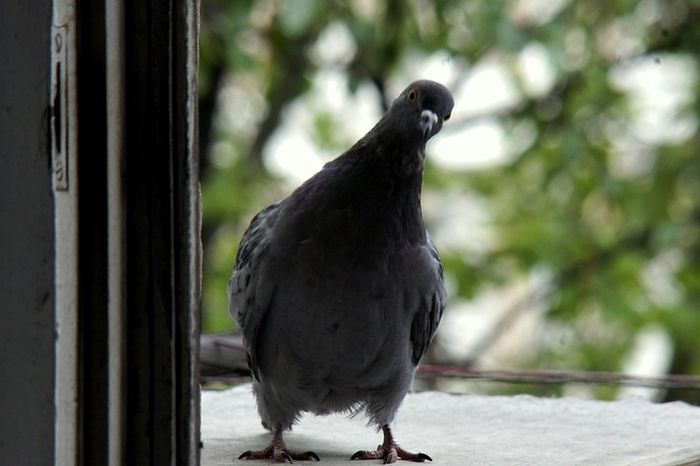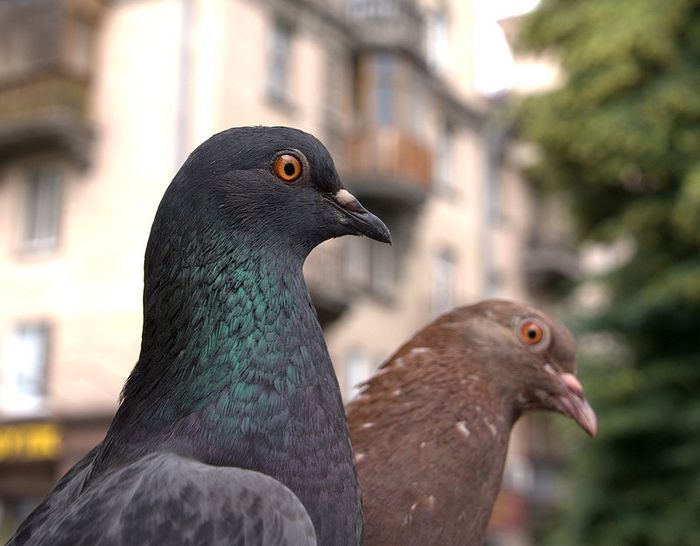Everything living in the world seeks what’s good for itself in the everyday material sense, but only man is called to possess good things that are spiritual and lofty; and the thirst for these good things is placed in his very nature, if only he would not extinguish this gift in himself. And when we are asked the question, “About what and how should we pray to God?” that spiritual thirst itself should always be the first to hint the answer to us. Remember what the Psalmist David says: Like as the hart panteth after springs of water, so longeth my soul after Thee, O God (Ps. 41:2).
The Lord Himself says that the Heavenly Father will give good things to them that ask him (Matt. 7:11). And by good things here is understood not food and drink, not clothing (not the ordinary things needed for everyday life), but the grace of the Holy Spirit, as it is stated forthrightly in another Gospel passage (cf. Lk. 11:13).
The highest good for us is the acquisition of the spirit of Christ, so that we would be emulators of Him in everything—not mechanical emulators but living ones, so that we would have in ourselves the same feelings that are in Jesus Christ. We need to seek for this most of all, and have this as our main concern.
But it also happens that our natural striving, muffled by vain, sinful, and fleshly life, weakens and dies in us to such an extent that instead of a vital striving for God there remains only a vague disturbance and anguish born of our torturous dissatisfaction with having inexplicably not gotten what we want.
Then there is only one way to return to a living and natural faith—this is the path of hearing God’s word. A conscious—perhaps even through force of will—striving to learn about God what He Himself willed to reveal to us about Himself, about the world, and about our calling. This desire to learn about God is entirely within our power, and bound up with our free will. And if out of the endless multitude of multiform and transient things of this world we choose the Word of God, then we choose the better part (Lk. 10:42), as the Lord says of those who desire to listen to Him. And the apostle Paul says that faith comes from hearing (cf. Rom. 10:17). That is, when we hear the Word of God, or read it, or receive it in a some other way (for there are people who are unable to hear or read, but the Word of God is nevertheless not hidden from them), when we accept those very words of eternal life (cf. Jn. 6:68) about which the Lord and the apostles speak, then we feed our souls with spiritual bread in a mystical manner, give it spiritual strength, and partake of life-giving power. As the Lord says, Man shall not live by bread alone, but by every word that proceedeth out of the mouth of God (Matt. 4:4). And as a person who has been filled with strength from eating bread comes fully and healthfully to his senses, so also a person who is fed by God’s Word gradually enters into a full and healthy condition, the foundation of which is a good connection with God through faith and the keeping of His Commandments. And the meaning of faith consists in keeping God’s Word. The Apostle Paul even said, Faith is the substance of things hoped for, the evidence of things not seen (Heb. 11:1). We wait for the complete fulfillment of the Kingdom of God, but faith helps us already here and now to do what depends upon us, so that the Kingdom of God would be manifest to us on earth as it is in Heaven. That is, so that our physical life in all its blessed and good aspects would be filled with the Holy Spirit; that it would be right, honest, and sinless—of course, to the extent possible in real life conditions and our constant struggle with sin. And, of course, this triumph of divine truth in our emotional and physical life, in our personal life, in the life of our family and society, is what we first and foremost should tearfully ask of God.
But how can we ask? With fervency and constancy, regardless of the circumstances of our mercurial external and internal life. Here the Lord again gives us an example through our little brothers [the animals]. Do you recall how the Savior spoke of the fowls of the air, that they neither sow nor reap, but the Lord feeds them (cf. Matt. 6:26)? How does He feed them? In all possible ways, including through us humans. But here is what is important: The birds themselves are also diligently search for food, and in their diligence they show us an example of how we ourselves should ask of the Lord—only not about earthly food, but the higher, spiritual food.
On the ledge over our balcony by the kitchen, a pair of pigeons has been living for a year now. That is, they appear there periodically, feeding from our household, and for them this has become a just as natural and inalienable part of their lives as flying, warbling, and making nests in the spring. But they don’t simply feed—they ask, demand food, insistently and regularly. Not accidently did St. Paisios say that we are like gods to the animals, and they expect mercy from us.
“The head of the family” is a venerable old pigeon who has “been around”, and lived through quite a bit. His little claws tell the tale, as they are somewhat frozen away, one toe being missing from one of them and the other presenting itself as a little stump upon which he limps as he unhurriedly ambles over the window sill. His friend—apparently younger and more spritely—in between feeds shows the most touching concern for him, now searching for fleas with tender warbling, now “kissing” him caringly.
They both for all appearances consider our balcony and kitchen ledge to be their “patrimony”, and when others of their kind fly there, a real fight for their “sphere of interests” begins. There are trumpet sounds of all threatening and warlike shades, and the flapping of wings—with which as it turns out pigeons beat each other up with all their might so that feathers fly—and “heroic” chest swelling, and all the other noisy attributes of pigeon fights. My balcony door is slightly ajar; sometimes in the morning I print things from the computer, and when these pigeon brothers kick up an unimaginable ruckus, I go out on the balcony to route them away. But this doesn’t happen very often—only when winged intruders encroach on their “domain”. The greater part of this pigeon couple’s life passes quietly and peacefully.
Thus, it’s early morning. I go into the kitchen, the blinds and curtains and closed, but I know that on the other side of the window, no matter what the season or weather, on the ledge is waiting either the “old timer” alone, or he and his lovely hen. First of all I can guess at this by their characteristic and, it seems to me, intentional “stomping”, by which the pigeons try to catch my attention as soon as they sense that someone has entered the kitchen. Because of this “tap-dancing” I call them the “stomping pigeons”. But if this “degree of influence” does not have the needed effect, an insistent and intelligible “grunting” ensues. No, this was not a slip of the lip; just imagine—when the pigeons want to remind us about them and get our attention they start to “grunt”. When my matushka comes into the kitchen and hears their grunting, without anyone having seen them through the closed curtains and blinds, she says knowingly, “Here’s the pair, Abraham and Sarah!”
The curtains open, we fix breakfast and talk, but in the meantime we notice beyond the blinds that cover half the window a curious head with an attentive eye in its orange rim periodically thrusting itself into the kitchen and looking around as if to say, “Well, have you forgotten about us in there?” And just to make sure, the usual “grunting” starts. This goes on as long as necessary… That is, until the window is opened and my wife shoves some grains or breadcrumbs through a hole in the screen. Then! Then there is great joy and wild ecstasy. They haven’t forgotten! Hurray! They’ve fed us!.. Incidentally, this hole didn’t appear in the screen through natural wear and tear but as a result of the pigeons’ persistent and tenacious requests on the one hand, and on the other, a heart that “gave in” to mercy.
Here we also have to mention that (I don’t know, whether to our shame or not), we have more than once sworn to close this “soup kitchen” of ours. That is because, as I already said, these two are not the only pigeons who fly over; others also come at times, in small moronically noisy flocks at that, and they leave their droppings all over the window ledge and balcony railings “out of gratitude”, barbarically turning them into “Augean stables”. And if you come out onto the balcony of a wondrous summer evening to breathe in the fresh air, the first thing you do is look for a spot to lean your arms where they won’t be smudged with the “offerings of thanksgiving”. And simply as I said already, such a moronic crowd of pigeons flies in from who-knows-where, squawking, grunting, fighting, demanding bread, pecking each other, and even trampling all over the flowers… In a word, this demanding crowd sometimes just exasperates me with its audacity, honestly. In such moments my matushka (she is undoubtedly the main “sponsor” of all these “orphans and paupers” angrily announces a stop to these feedings. Then, truly, for the next few days she patiently endures the window ledge battalion, and the fights, and the noise, and the moronic throng, and even the importune tapping on the window with their beaks. But as soon as on some quiet ordinary morning matushka suddenly hears the persistent but nevertheless tactful “grunting” of the “old-timer” and his girlfriend, and sees their touching care for each other, she “breaks” and opens once again the, it would seem, forever closed shutter, and pushes some bread crumbs through the intentionally torn hole, and the whole cycle begins again…
It all starts again, because we have to remember: Ask, and it shall be given you; seek, and ye shall find; knock, and it shall be opened unto you (Matt. 7:7). If only we would not wait for everything to happen by itself, but also ask, persistently and constantly…
This spring the “old-timer” amazed us; he began bringing us twigs. That is, he didn’t just “pass by” with these twigs in his beak, but brought them to us, peeked into the window, and waited until the “mistress of the house” appeared, and then nearly handed her these “twigs of peace”—persistently and patiently. We tried to understand what this means, and we joked that the “old-timer” was inviting matushka to become his “first lady of the nest”. But in any case we kept recalling the story of Noah and the dove, which brought the olive branch in his beak as a symbol of mercy and peace between mankind and God…






